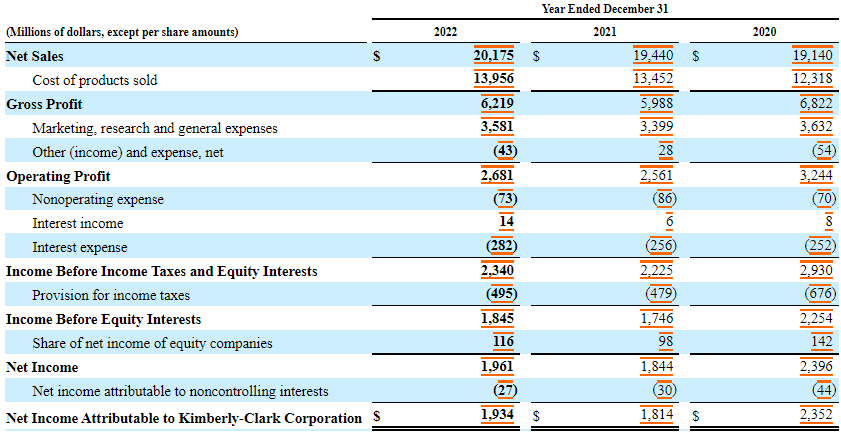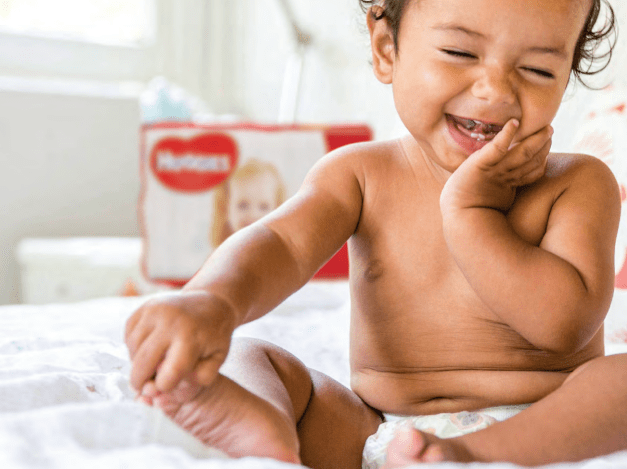Kimberly-Clark Corporation’s challenges include the evolution of the birth rate in some of its markets, rising prices and changing consumer preferences, among others.
First and foremost, sales of its childcare products (child rearing and care during the early years of childhood) are closely linked to the evolution of the birth rate.
Corporation’s challenges
In recent years, declining birth rates in key countries such as China, South Korea and the United States have put pressure on the category’s volume growth rates.
Financial results of Kimberly-Clark
To help mitigate the effects of the birth decline, Kimberly-Clark’s goal is to drive sales growth at or above category growth rates through innovation, premiumization, strong brand development plans and investment in digital marketing as part of its Elevate and Expand growth strategy.
In terms of pricing, its net sales growth and profitability may be impacted by adjusting prices to market conditions.
The company adjusts its product prices based on a number of variables, including demand, the competitive environment, technological improvements and changes in its raw material, distribution, energy and other input costs.
Kimberly-Clark
The company increased its prices in 2022 in response to continued inflation related to the ongoing effects of the Covid-19 pandemic and other market conditions, including the war in Ukraine.
In 2023, Kimberly-Clark expects challenging market conditions to continue to affect pricing.
Price changes may affect net sales, profits and market share in the near term as the market adapts to new pricing and other market conditions.
On the other hand, Kimberly-Clark’s operating costs include raw materials, labor, selling, general and administrative expenses, taxes, foreign currency impact, and financing costs.
At the same time, the retail landscape in many markets is evolving. This change is driven by the rapid growth of e-commerce retailers. Additionally, consumer preferences are shifting, with more people shopping online. There is also an increased presence of alternative retail channels, such as subscription services and direct-to-consumer businesses.
Changes in consumer preferences also include a heightened concern about post-consumer waste and packaging materials, as well as their impact on environmental sustainability.
War in Ukraine
Effective March 2022, Kimberly-Clark has implemented significant adjustments to its business in Russia.
The company has substantially reduced media, advertising and promotional activity and suspended capital investments in its only manufacturing plant in Russia.
In line with the humanitarian focus of its products, Kimberly-Clark only manufactures and sells essential items in Russia. These include baby diapers and feminine pads, which are vital for the health and hygiene of women, girls, and babies.
The company’s Russian business represents about 1 to 2% of its global net sales, operating profit, and total assets.

